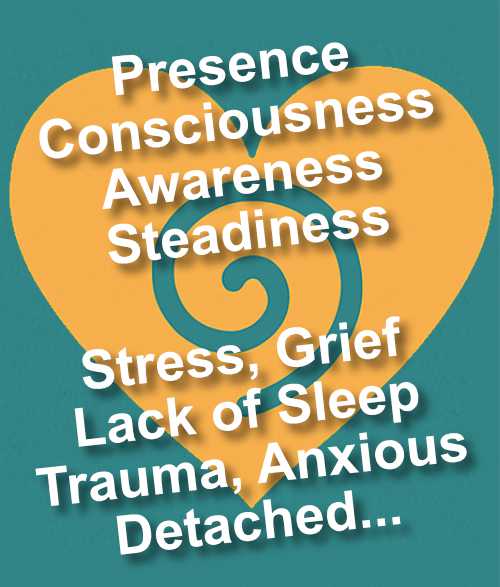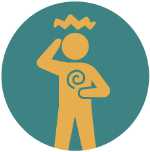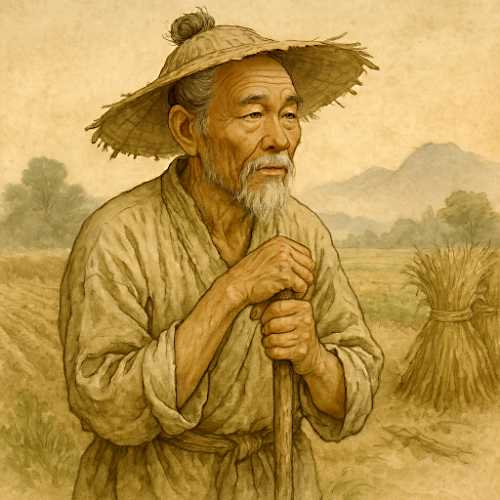The Spirit of the Heart:
Understanding 'Shen' in TCM
In Traditional Chinese Medicine (TCM), mental and emotional health are inseparable from physical well-being. At the center of this understanding is the concept of Shen (神), often translated as “spirit” or “mind.” But shen is more than thought or personality—it represents our presence, consciousness, awareness, and emotional steadiness. It resides in the Heart, which TCM calls the “Emperor” of the body, overseeing all organs and systems through its clarity and calmness.
 When the Heart is healthy and the blood abundant, shen is settled. We sleep well, think clearly, and respond to life with emotional balance. But when shen is disturbed by stress, grief, lack of sleep, or trauma, we may feel anxious, restless, forgetful, or detached. Over time, anxiety can lead to sleep disorders, digestive upset, chronic fatigue, palpitations, or even immune dysregulation. In TCM, these are not unrelated symptoms but signs that the “Emperor” is overwhelmed, and the shen cannot anchor properly in the Heart.
When the Heart is healthy and the blood abundant, shen is settled. We sleep well, think clearly, and respond to life with emotional balance. But when shen is disturbed by stress, grief, lack of sleep, or trauma, we may feel anxious, restless, forgetful, or detached. Over time, anxiety can lead to sleep disorders, digestive upset, chronic fatigue, palpitations, or even immune dysregulation. In TCM, these are not unrelated symptoms but signs that the “Emperor” is overwhelmed, and the shen cannot anchor properly in the Heart.
TCM treats this condition not just by calming symptoms but by restoring harmony in the entire system. Anxiety is often linked to Heart-spleen deficiency (when the body cannot produce enough blood to house the shen), Liver qi stagnation (when emotional repression or stress blocks flow), or disharmony between the Heart and Kidneys (when fear and overwork deplete deeper reserves). The treatment principle is to calm the shen, nourish the Heart, smooth the Liver, and ground the Kidneys as needed.
Common TCM treatments include:
Acupuncture: Points such as HT7 (Shénmén) calm the mind, while PC6 (Nèiguān) eases anxiety and regulates the Heart. Yintang, located between the eyebrows, is used to settle the mind and relieve tension. Treatments aim to bring the nervous system into a parasympathetic state, what we call “rest and digest”, promoting healing from within.
Herbal medicine: Formulas like Gui Pi Tang support Spleen and Heart function, increasing blood and calming the spirit. Suan Zao Ren Tang nourishes the Liver and Heart, commonly used for insomnia with anxiety. Herbs are chosen not to sedate but to restore underlying patterns of disharmony.
Qigong and lifestyle: Gentle movement practices regulate breath and qi flow, helping emotions move rather than stagnate. Sleep hygiene, emotional journaling, and quiet time are often part of treatment. Even small changes—like walking at sunrise or limiting evening screen time—can settle the Heart and soothe the shen.
In today’s world, anxiety is seen as an invisible burden. But in TCM, it has visible roots in the body’s systems and treatable patterns of imbalance. By caring for the Heart and calming the shen, healing becomes possible—not just for symptoms, but for the person as a whole.
Vocabulary Guide
- Shen (神): Spirit or consciousness, housed in the Heart in TCM
- Qi (气): Vital energy that flows through the body
- HT7: Heart 7 acupoint (神门 Shénmén) or "Spirit Gate", often used to calm the spirit
- PC6: Pericardium 6 (内关 Nèiguān), regulates the Heart and calms anxiety
- Yintang (印堂): Calming point located between the eyebrows
- Gui Pi Tang (归脾汤):Tonifies Spleen and Heart, supports sleep and memory
- Suan Zao Ren Tang (酸枣仁汤) : Nourishes Liver and Heart, used for insomnia and anxiety



